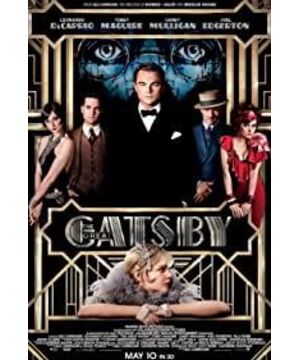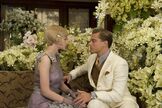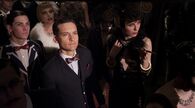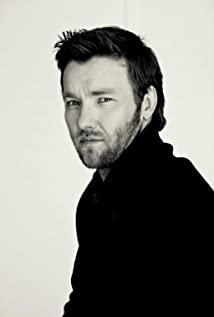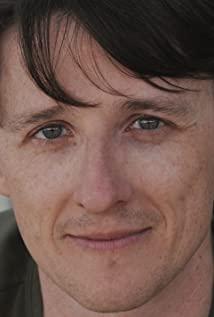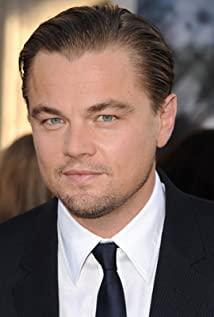"The Great Gatsby" has been put on the screen four times since it was written, but like countless great works of literature, "the best way to ruin a novel is to put it on the screen". In the summer of 2012, Luhrmann, who had directed "Moulin Rouge", launched his fourth attempt at "The Great Gatsby."
"The Great Gatsby" is a great masterpiece that is well-known in the United States. At the end of the 20th century, the American academic authority selected one hundred best novels in the century-old English literature. "The Great Gatsby" is widely expected. , ranked second, proudly among the ranks of contemporary classics. Its interpretation of the American Dream represents the disillusionment of a "lost generation" with the American Dream. The story background of the novel is the United States in the "prosperous era" after World War I, and the story location is Long Island, the core of the United States.
In 1920, what era was that? Let's find out in Zweig's autobiography. “The world of the 20th century, in its liberal idealism, who sincerely believed in itself, was following an infallible and smooth road to the “best world.” People looked with contempt at what was once a war, famine, and violence. In the era of chaos, we thought it was an era when human beings were immature and uncivilized. Now, all evil and tyranny will be completely eliminated in just a few decades. At the end of this peaceful century, the common Prosperity became more visible, more rapid, more colorful." And in the opening remarks of Gerrard's short story "May Day", he used vivid imagery and cheerful rhythm to describe the era Intoxicating atmosphere "This is the most entertaining and colorful era in American history, and there will be much to write about this era." Gerald called this era the "Jazz Age", so it is repeated in many of his novels. There is a scene of jazz playing, and in Luhrman's "The Great Gatsby", although the soundtrack has been criticized by many book fans and jazz fans, I still think that jazz performed with modern technology can better reflect the then. vanity.
The First World War has just ended, Wilson has ruled Europe like Caesar as the "Prince of Peace", and it is time for the United States to lead the free world; the industrial revolution is still going on, and the gasoline-smelling engine is roaring in the streets; The League of Nations was established, and the war seemed to be seen only in textbooks or in Chaplin's silent films. This was a golden age, not much less even after World War II.
It is against this background that Nick, a poor writer, came to prosperous New York with the ideal of realizing his "American Dream". Because of some artificially arranged "accidents", he came into contact with Gatsby, the rich man, and has since opened a door to a life of intoxication. Gatsby is a legend, he served in the army and fought in World War I; he is said to have attended Oxford and received the most noble education; he had a great fortune, but no one knows the source. Some say he was "the third cousin of Julius Caesar, the second cousin of the devil, and the nephew of William II"; he was so mysterious that few people saw him. However, Nick is invited to a party at Gatsby's mansion under such ignorant circumstances. "His smile is one of those precious and rare smiles that you might see four or five times in your life, and he seems to understand you and trust you, like you want to be understood or trusted" and Nick I learned about Gatsby's inner world, how Gatsby realized his "American Dream", and the deep love Gatsby had for Nick's cousin Daisy. While helping Gatsby pursue Daisy, Gatsby is murdered by Daisy and her husband Tom. After witnessing this tragedy, a disheartened Nick leaves the bustling metropolis and returns to his hometown with sadness.
Few adaptations of this type of masterpiece can reach the perfect level. If you can grasp the mystery that this masterpiece can live in people's hearts for a long time and interpret it perfectly, then this adaptation will be a success. So what is the reason why "The Great Gatsby" has been popular for nearly a hundred years? It lies in the doubts about the "American Dream", the questioning of the spiritual emptiness in people's hearts in the 20th century, and the destruction and persecution of human nature by the capitalist nature of the supremacy of money. survive. Let's take a look at the movie without the soundtrack by these standards.
scene 1
Nick was taken by Tom to the private apartment kept by Tom for his mistress Myrtle, and saw a "capitalist" carnival with distinctive symbols of carnival and decadence. A black jazz player played a dynamic melody, and a tall and fair-skinned lady teased a young man from the western country. Nick, played by Maguire, has changed from being restrained at the beginning to being sloppy. "Dominated by the madness brought by chemical agents, and the desires in our hearts are overwhelmed by clouds and rain." Yes, prosperous urban life is slightly boring than Yale. The clubhouse is so much better! This is our American Dream! However, the next moment the camera suddenly changed, Nick walked to the balcony between the revels, opened the windows, and saw that there was an intoxicating atmosphere of orange-glowing windows, and every attic was revelling. Outside, a black child pushed open the window of his house and looked enviously at the colorful urban nightlife with something indescribable in his eyes. The person standing outside the yellow window who is farsighted is also the former Nick. From near to far, we see the brightly lit metropolis.
Scene 2
Nick is invited by Gatsby to his house for a fun party. People came from all corners of the city, dazzling jewelry, luxurious dresses, and that striking yellow sports car. This isn't a private party, it's a carnival across the city. Beautiful ladies wearing jewels walked into Gatsby's mansion led by handsome guys. In the house, the most famous dancers are dancing, on the beach, beauties represent wealth, entertainers are performing, and people from all walks of life are interacting. Nick was stunned, apparently more frightened these days than he had in previous decades combined. As Baker said: No one cares who Gatsby is, we just want a private space to vent, in this lustful city.
scene 3
When Gatsby died, Nick called Daisy, hoping she would come to the funeral. After all, Gatsby suffered for her to some extent. However, Daisy did not. She reunited with her husband Tom and went on to travel the world. In fact, from the beginning, when Gatsby wanted to reconnect with Daisy, it was already doomed to a tragic fate. Gatsby thinks that Daisy was forced to marry Tom, a famous son of a family, so he works hard to become a millionaire, and wants to regain his love. However, the goddess in Gatsby's heart is just a material girl in the mundane world, and Daisy's re-association with Gatsby is just some excitement and fun that a lady wants to get after she is empty of spirit, and it has long disappeared in her heart. True love. But Gatsby didn't notice it, and tragedy struck in the end. Daisy's sarcastic smile as Nick announces Daisy Gatsby's funeral is something we'll cherish for a long time. Daisy in Gatsby's heart is the embodiment of beauty and his goddess, while in reality Daisy is just a good sustenance in Gatsby's heart. Although Gatsby has long discovered that "her voice is full of money", she is still stubborn. It has to be said that it is also a kind of self-intoxication to interact with her.
There is no doubt about the lighting effects of the film, especially in the moment when Gatsby appears, the colorful fireworks, Leonardo's elegant and mature face in the soft light. and the green light in the dim, distant depths of Gatsby's pier looking across at Daisy's house. The dazzling lights in the whole film make the era look much paler, which is also in line with the original text to some extent.
However, the shortcoming of the movie in terms of storyline is that it only makes Gatsby's biological father appear for a few seconds at the end, and does not show the audience the plot of the old man showing Gatsby's daily schedule in the original text. Sadly, that timeline is actually a big factor in Gatsby's success: hard work. The original text reads:
Get up 6:00 am
Dumbbell gymnastics and wall climbing 6.15-6.30
Study electricity 7.15-8.15
Work 8.50-4.30 pm
Baseball and other sports 4.30-5.00 pm
Study speech 5.00-6.00
Learning useful inventions 7.00-9.00
Individuals resolve not to
waste time going to the Shaft's house Do
n't smoke or chew tobacco Every other day Take a
shower Ah, but in the end it ended in tragedy, which is the "great" American dream. But what exactly is the "American Dream"? The general consensus is that in the United States, as long as you struggle and work hard, you will succeed, and the cobbler's son will become a millionaire. But there are not a few people who are as tragic as Gatsby. The problem is not the American dream but that some people cannot survive under that system, such as those with a pure heart like Gatsby. In the atmosphere of capitalism where money is paramount, people's pursuit of material wealth has reached a fever pitch, and people are reluctant to leave even the slightest place in their minds for anything other than material things. Under the slogan of liberalism "self-interest can make society progress", morality has declined and it is rotten. The so-called American Dream is more like a process in which a sincere person is constantly being transformed and polished by capitalists into an indifferent and selfish person. If you have been transformed, congratulations, you can realize your American dream. But if you are unwilling to give up your yearning for good things in your heart, what awaits you is Gatsby-like destruction. So how does the Chinese dream compare to the American dream? The Chinese Dream is even more shameless. The dreams of workers and the dreams of capitalists must be in conflict, and the dreams of the common people and the dreams of officials must be in conflict. Without solving the root cause of social contradictions, is it possible to use one dream to unite everyone? In addition, does the people use the state to realize their dreams, or does the state use the people to achieve their goals? There is no "American Dream", the liberation of man depends on unbelief, and the success of man also depends on unbelief. You make liberalism a god and it will treat you like the devil. PS: This is the first time to write a movie review, just spray lightly.
View more about The Great Gatsby reviews


